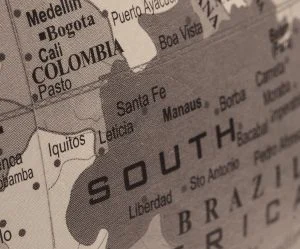The Rio de Janeiro State Lottery (Loterj) has appealed the Federal Supreme Court’s (STF) ban on its licensed operators accepting bets outside the state of Rio. The state regulator has said the ruling will cut tax revenue and disrupt the newly regulated betting market.
On 2 January, STF minister André Mendonca passed a preliminary decision in response to the Original Civil Action No 3,696, filed by the attorney general’s office (AGU) in October 2024 amid a long-running spat between Loterj and the Brazil federal government over the state lottery’s attempts to allow its licensees to operate beyond Rio de Janeiro state borders.
Loterj claims its 2023 regulations (Accreditation Notice 01/2023) should enable its licensees to operate public lottery services throughout Brazil. However, Mendonca’s decision has suspended some of the provisions in that notice, while also requiring Loterj licensees to reintroduce geolocation tracking so they can only accept bets in the state of Rio de Janeiro.
Loterj was given five days from Mendonca’s 2 January decision to halt its nationwide activities and enforce geolocation checks.
However, Mendonca’s ruling also gave Loterj the right to contest the STF’s action and on Friday (3 January) it decided to lodge an appeal with the aim of suspending the order.
Loterj warns of STF decision’s impact in Brazil
Loterj issued a press release on Friday which warned of the potential harmful impacts of Mendonca’s ban on its licensees operating throughout Brazil, as well as the reintroduction of geolocation tracking.
It said the suspension of the provisions in Loterj’s Accreditation Notice 01/2023 would lead to millions in compensation needing to be paid, a “significant” drop in tax revenue for the federal government and risks destabilising the newly launched regulated betting sector in Brazil, which was initiated on 1 January.
The state regulator also blamed the federal government for the issues brought up in the ongoing legal battle between itself and Loterj. This includes heavy criticisms of increase gambling activities in the second half of 2025 amid public concern that the black market is thriving in the country.
In Loterj’s view, the long delay between the National Congress first approving legislation for online betting in November 2018 and the final green light from the Chamber of Deputies in December 2023 gave rise to illegal sites and subsequent gambling harms which have been documented in various high profile reports by Brazil’s Central Bank and Santander.
“Loterj also states that its action in regulating the sports betting sector in its territory was a necessary and legitimate response to the inaction of the Union, which allowed the deadline established in Law 13.756/2018 (federal gambling laws) to elapse without due federal regulation,” Loterj claimed.
The need to reassess contracts
According to BNL Data, part of Loterj’s rejection of the ban relates to it needing to alter agreements with existing licensees. Part of the challenge is enforcing geolocation tracking, a measure that some state-licensed companies may not agree to or be able to comply with due to the five-day turnaround.
As a result, Loterj is calling for the effects of Mendonca’s decision to be urgently suspended, while its existing agreements with state licensees is maintained until a final decision on the AGU’s Original Civil Action No 3,696 is made.
Mendonca’s preliminary injunction is set to go to the STF plenary between 14 and 21 February, when it will face a referendum through a virtual session.



